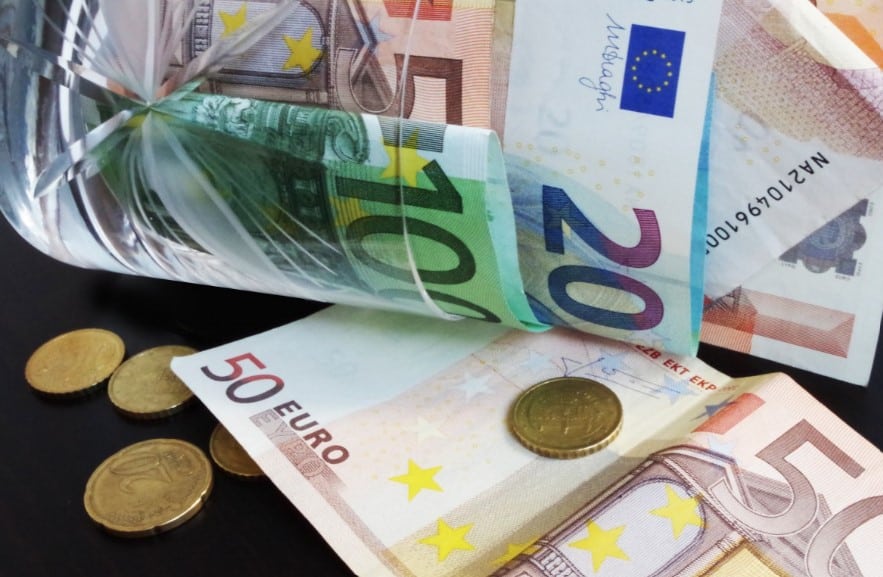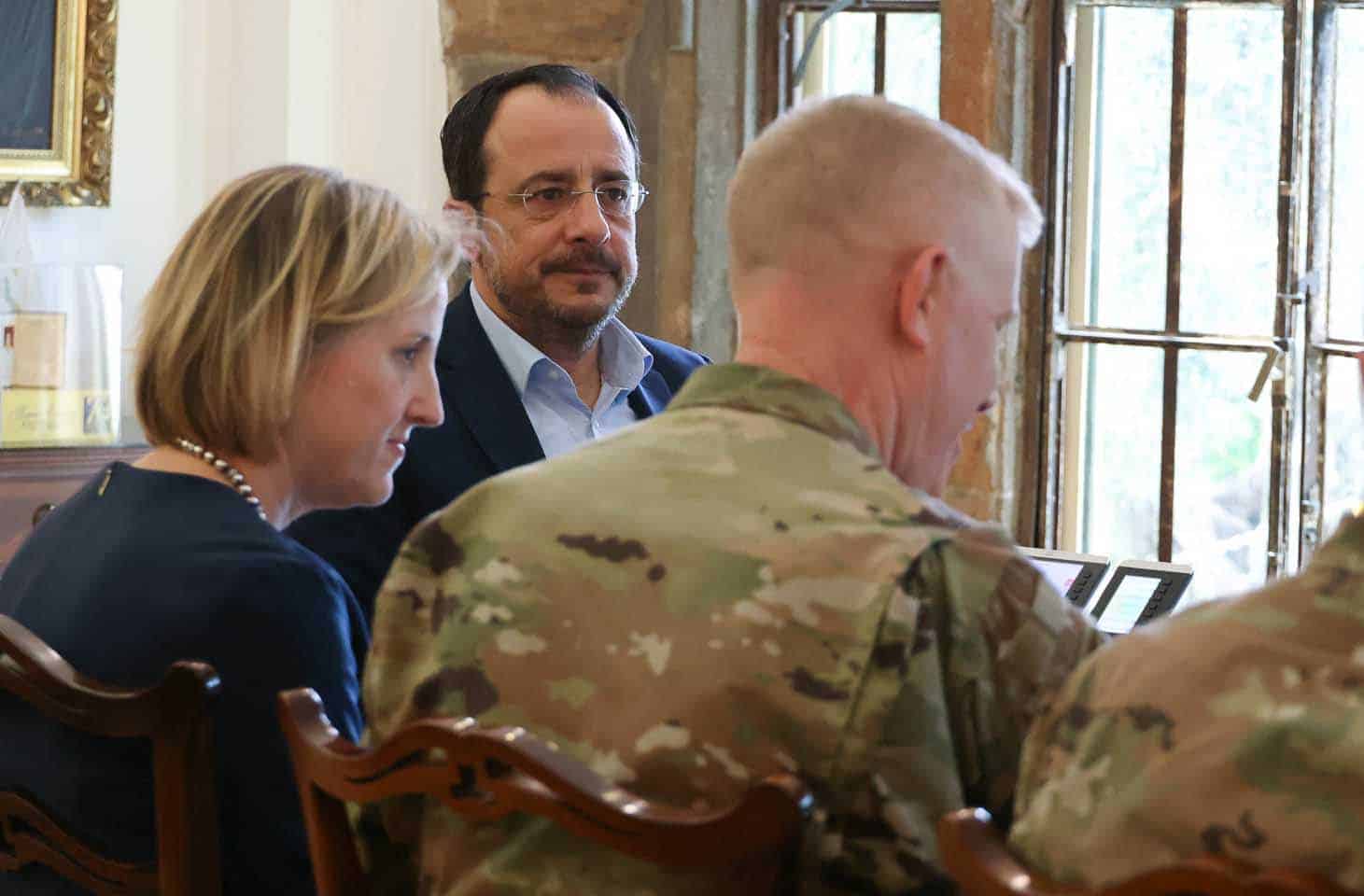The latest announcement for cooperation between Cyprus and the FBI in the US over money laundering and sanctions evasion appears to have struck the right chord publicly.
While the direct US involvement has been viewed positively, questions remain, however, over how this will pan out practically for the country dealing with decades of a crippled reputation on combating financial crime linked to Russian money, and how much resistance this might be met with from within.
The development with the US announced on Tuesday comes almost a year after Cyprus was hit with US and UK sanctions on dozens of individuals and companies deemed to be financial fixers for Russian oligarchs after its invasion of Ukraine.
Currently, discussions are underway to figure out the terms of how much access to data the US will have. “There are issues of personal data at stake that have to be discussed,” a government source told the Cyprus Mail.
The Cyprus’ government and the US embassy in Nicosia have presented the deal as coming at the behest of President Nikos Christodoulides.
Asked to what extent Cyprus actually had a choice on the deal with the FBI, Undersecretary to the President Irene Piki told the Cyprus Mail there was no doubt it came directly from Christodoulides.
“We could’ve let things be business as usual, as had been the case in previous years,” she said.
Two sources close to the matter said there may have been an element of Cyprus somewhat ‘required’ to accept the help, after years of apparent failure on clamping down on money laundering and sanctions evasion.
“In any case, Cyprus can’t afford to have any more shadows over its reputation. So it’s for the best,” one government official said.
Another presidency source and industry stakeholder concurred.
“The pressure Cyprus is under is not without reason,” said one.
Tackling prosecutions
The US-Cyprus announcement on Tuesday described “a substantial US investment in Cypriot capacity” with an aim to counter financial crimes “and strengthen future prosecutions”.
It will see direct collaboration between the two justice systems, including Cyprus’ legal service and the anti-money laundering unit (Mokas).
The nod to prosecutions in the announcement is a telling sign of where the country’s weaknesses lie.
“In our discussions with the justice ministry, we were directly told there was an issue with human resources,” Piki told the Cyprus Mail.
The issue of course runs deeper. A source close to the matter shared that Christodoulides took the step to turn to the US when the Cyprus Confidential reports came out last year – naming the country for allegedly shielding Russian wealth. It emerged authorities had been alerted long before but nothing had actually happened.
“We simply don’t have the expertise to deal with the scope of such huge matters,” the source added.
Nonetheless, the same source shared that inevitably, “there were suspicions of coverups.”
Another source described it more bluntly: “there is the pathogen of Cypriot society, rife with corruption.” It is the idea of ‘you scratch my back and I scratch yours’ that kept the money laundering industry thriving, he said.
“For years Cyprus took investments that weren’t clean. Now we’re dealing with the consequences,” a finance expert stated.
He added the US involvement can be seen as a positive thing for the industry. “If cases are investigated, that means clearance straight from the horse’s mouth.”
Lurking behind the developments are doubts over whether the declared lack of expertise hides a lack of willingness to actually break down the industry that many have built their livelihoods on.
“There are experts in the field, certainly,” one source said. But there’s a question over whether they are under-utilised, he added.
It appears that despite the sanctions, there are still companies in Cyprus that still haven’t cleared up their act, which the government is aware of. With prosecutions lagging behind “the Americans want to help us,” one source said.
Rather than continuous sanctions that tarnish the country’s reputation, accepting the help from the US appears to be the smarter move for Cyprus, they said.
Reactions
What remains to be seen, is how the collaboration will unfold practically. There is no question that the US means business as it battles Russian money.
Police investigations will have involvement with the FBI. They will be Cypriot led but the US presence will be there, for expertise purposes and help to get the cases prosecuted.
Certain circles from within are not very keen, with one source describing a “powerful lobby” that has a large sphere of influence.
The fact of the matter however lies that with Cyprus’ banking system so internationally exposed, its reputation is of paramount importance. It does not have much of a choice. Ignoring US designations would be catastrophic to the economy, the Central Bank governor explained.
Indicative of the impact of the sanctions, Cyprus was worst hit out of all EU countries, which suffered the worst outcome on its trade, with approximately a six per cent reduction in aggregate output according a study published last year.

Cyprus is grappling with its international reputation of a money laundering haven
Delays
At the same time, the government has not remained immune to criticism domestically. First, professional association have been critical over announcements made by the state to regulate the industry.
Secondly, there have also been criticisms that the government may be dragging its feet. In November, it announced that ‘next week’ a deal would be signed with professor of finance at the University of Cyprus Dr Andreas Milidonis.
He would be appointed to support the government’s measures on sanctions.
Four months later, this has yet to materialise.
Piki concedes this is frustrating, saying the agreement is currently being scrutinised by the legal service. “We are also exerting a lot of pressure to speed things up. We don’t expect it to take too long now.”
Regulating the industry
Beyond the help from the US, the government has also turned to the UK for assistance for a sanctions unit to be set up.
The finance ministry is receiving expertise from Deloitte UK and the unit is expected to be ready by 2025, Piki underlined.
It will unify the existing two teams at the finance ministry dealing with sanctions and strengthen it with more resources and know-how, she said.
At the same time, the government also wants to go tough on oversight for the industry providers. This means the Cyprus Bar Association (CBA) and accountants’ association (Selk).
Effectively, it aims to put a stop to self-regulation in professional bodies that have created questions of conflicts of interest.
According to Finance Minister Makis Keravnos, the current framework is to have both bodies fall under the oversight of the Cyprus Security and Exchange Commission (CySEC).
Piki explained that CySEC was chosen to oversee the other professions because it “already has a unit dealing with anti-money laundering (Mokas]. It has expertise that we can build on.”
Additionally, it is an independent body rather than a professional association. Its leadership is appointed by the government, rather than elected by its members.
The International Monetary Fund (IMF) itself earlier this week urged authorities to “continue to strengthen the effectiveness of the anti-money laundering framework by creating a single supervisory agency to oversee self-regulation by accountants and lawyers.”
The statement after an official visit to Cyprus also highlighted that the creation of a national sanctions’ enforcement unit will reduce risks from potential sanction evasion.
The CBA has been vocal in its opposition over the new framework, arguing it goes against the law and violates customer-client confidentiality. This is because it requires CySEC to be involved with the lawyers or accountants in oversight.
“The bar association is the entity tasked with regulating lawyers,” its chairman Michalis Vorkas said.
Independent body
CySEC chairman George Theocharides said in his view, it would be better to set up an independent entity to oversee the bodies. The idea is also shared by Selk general manager Kyriacos Iordanou who highlighted the professional bodies were never consulted before this framework was presented to them.
“Three supervisory authorities could have different ideas on how to converge over supervision…We have to look at the legal framework and implementation issues,” Theocharides stressed.
While there is no question that the status quo cannot go on, he said the government is determined that having CySEC at the helm is the way to go, despite suggestions for a different setup.
“We are open to dialogue to see how we can make this work.”







Click here to change your cookie preferences